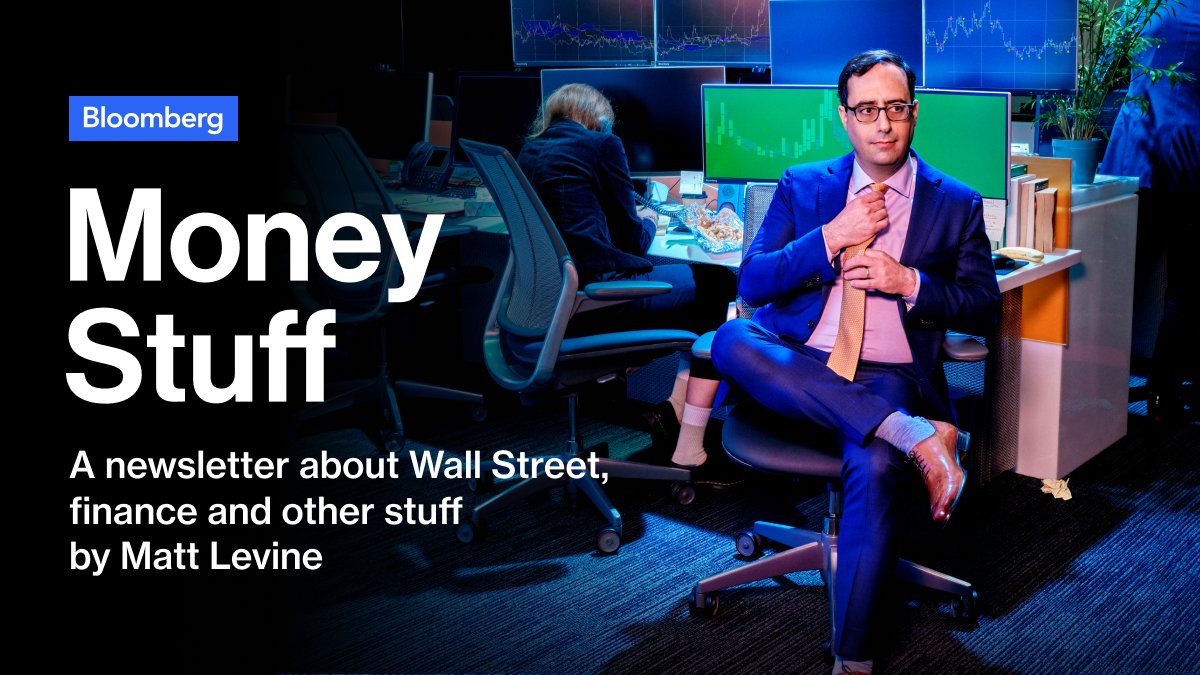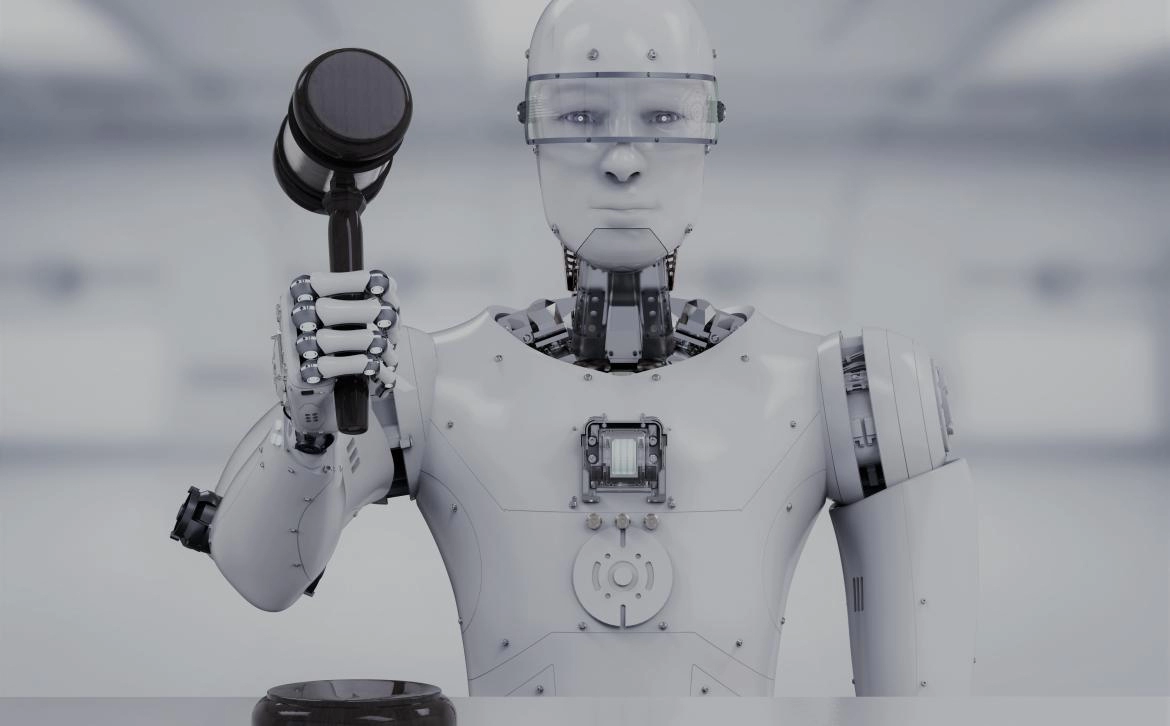272 - ai still ain't it 🤖⛔
order and chaos and ai, oh my!
Hey there, !
A bit of a messy article this week (what's new) - I start by fawning over another person's newsletter, to weird things happening in America on the enforcement of law, to why AI still sucks, and try to conclude with something more abstract and profound.
We understand? No? Let's go on with it anyway.
I sign up for lots of email newsletters because, well, I write one, so it's good research, and also, so I can work out how to write more good.

Money Stuff by Matt Levine is a financial affairs newsletter that breaks down the news of the day. That might sound boring, but he writes very clearly as a former lawyer / investment banker / analyst and aims to give you the intuition of why something is good / bad / funny / interesting, rather than try to walk you through the entire legal framework or reasoning for things as they happen.
For example (and this was the genesis of today's post):
Traditionally the way regulation works is that there are rules, and you are supposed to follow them, and if you do not follow them you get in trouble with the government. Companies organize themselves around this basic reality. A big bank will have a compliance officer, and the compliance officer will say to the bankers “hey guys don’t pay any bribes,” and if the bankers say “why not” the compliance officer can answer “because if you pay bribes we will have to pay a big fine and you might go to prison” and the bankers will say “oh right that’s bad.”
But in the Trump administration, an important law against paying bribes — the Foreign Corrupt Practices Act — has not been repealed, but it is no longer being enforced. [emphasis mine] President Donald Trump doesn’t like the FCPA, so he issued an executive order “pausing” its enforcement. What does that mean? If you are a compliance officer at a bank, and a banker comes to you and says “hey I’d like to pay bribes, is that cool now,” what should you say? Well! I am not going to give you legal advice, but my anecdotal impression is that actual compliance officers who get this question these days still say “absolutely not, no bribes.”
What a weird legal quirk - that you can have the rules, but if no-one enforces them, it doesn't really matter? I feel like that's a core assumption that was just baked into the systems of our society - there are laws, people follow them, they're enforced by other people (i.e. the police, or judges, or regulators), and we have some level of order in society so we don't go around murdering and stealing and paying bribes.
For me, the interesting thing about what Trump's doing these days is really dragging out the assumptions and conventions into the open, and really testing them to see if they hold up. If I was being super charitable, I'd probably say he was helping to test our democracy! But perhaps that's a bit more for another time...
I was just flabbergasted that you can just say 'okay the law exists but we don't enforce it', and that by pumping through so many executive orders, it'll take so much time to clean up and appeal.
And in the meantime, at that level of power, you can just do whatever you want!!
So then, my own thought process jumped in here to try and solve the problem and was like 'okay well what if we just had an AI regulator / enforcer that brought all these cases so that we could work out who's wrong and who's right?' I mean, you'd then also need an AI judge as well, but at least it would shortcut all this enforcement nonsense, right?

Well...for one, I wondered if an AI judge would be able to appropriately distinguish and / or analogise cases to others in the same way that a dedicated, incentivised lawyer who is trying to spin facts and arguments in your favour could do. I wondered if taking away that advocate for you would be prudent, at all, since appealing to other's humanity and the whole jury system is predicated on, well, using arguments to try and hash out the truth.
Then again, that doesn't mean it's the best system - like, maybe that AI would be able to find out the 'objective truth' (if it exists) in a more reasonable, explainable fashion, which gets closest to the truth (or at least, closer than humans). In which case we would be able to get closer to the truth using data and probabilities and some sort of number crunching that a computer / AI could do.
However, that also assumes that the right data is fed into the AI. It's unlikely to have all the data in the world, especially anything that could help make an objective determination, unless the case was a clear open and shut case (in which case an AI judge wouldn't really be needed anyway!).
Maybe that changes in the future when every single part of our lives is under surveillance; both externally, and internally (perhaps they'll make the Thought Police real!). Shiver me timbers!
But then, assuming there was an AI regulator / enforcer who was trying to make sure everyone was following the rules, would they understand the fuzzy edges of human interaction and how to account for changing morals and moods of society to provide consistency to rulings?
There's a concept called equity in law, which essentially is the 'common sense' rulings that judges over the decades and centuries have worked out. It's things like 'okay, you did a bad thing, but really, no-one got hurt and the right people got their stuff back, so who really cares', or 'yeah you did the wrong thing, but the other party were absolutely feral and we think that that means you shouldn't be punished'.
Obviously, those aren't technical reasons (I'm not a lawyer), but I think that it's understandable that those things are hard to make value judgements for - not only as a human, but also as an AI! It's not necessarily impossible because I'm sure this piece will age badly and in 20 years time an AI judge will be like 'you wrote WHAT about me???' when I'm in court for a traffic violation or something, but for now I'm pretty confident that it's not an easy task to perform.
And if judges have trouble with this kind of stuff, then it's likely that AI would have trouble too.
So really, all that to say 'okay maybe not AI judges then'.
NB: just before publishing this I found AI Judge Pro which actually allows you to write up both sides of a case and ask it for a verdict. I haven't tried it yet, but I guess it's happening already!!
But really, at a meta level I bring all this up more to say that ancient wisdom of the yin and yang between order and chaos shines in all these types of issues. The tension and swirling of the yin/yang just naturally occurs! For example:
- Order: we put in rules and laws to try and create order
- Chaos: people try and fuck around with the boundaries of those rules to create chaos
- Order: judges and other enforcement bodies try to ensure those things are accounted for, with case law
- Chaos: authoritarian leaders chuck all that shit out because why not
- Order: we try to take down those authoritarian leaders and put in new laws...or perhaps, new enforcement bodies (AI?)
- Chaos: AI takes over????
The head swirls with possibilities for new sci-fi. Perhaps escaping to fiction will be a luxury in the future...since we'll be living the worst of it.
Chat soon :)
Let me know if you have any feedback for the newsletter!
📋Today's Question
Seriously, 3 of you chose Monopoly when I specifically asked you not to???

Anyway, I want to write a Choose Your Own Adventure challenge on the newsletter because I think it would be fun. So before doing that, I thought I'd get your input on what we should do!
✔️Real Life Recommendations
-
Mickey 17 - by Bong Joon Ho (notable for 'Parasite' and 'Memories of Murder'). For me - 4 stars - because it's a sci-fi film with very silly elements. It's not the most perfect of films, especially with story and plot beats, but the performances are fun (Robert Pattinson shines with a new accent) and the sci-fi idea is interesting and it's got enough entertaining elements for me to stay engaged! Recommended :D
-
Patsy's - a meat free wine bar that has some super cosy vibes, some great cocktails and a lovely menu. Went for a friend's joint birthday and it was a great experience - highly recommended right next to Queen Vic Market!
🚌 Adventures on the Information Super-Highway
-
It's as if you were on your phone - incisively interesting 'game' where you simulate being on your phone...on your phone. Play it in public!
-
ClaudePlaysPokemon - was only a matter of time before we got this. LLM plays Pokemon...slowly! It's taking AGES to think through every single decision, and took about 78 hours to escape Mt. Moon on it's second attempt. It sucks at updating it's memory (which they added after the first run because it was shit at keeping knowledge of what they were doing) and is obviously bad at like...long term goals. Very interesting that we even got here though!
-
Which shows go their finale right? - a statistical analysis - we love data here on Potentially Interesting because it's always interesting (to me!). And I'm watching The Sopranos at the moment which is some PRIME tv but also has an infamous ending. This analysis was run early 2024 but still fascinating to read!
Add a comment: